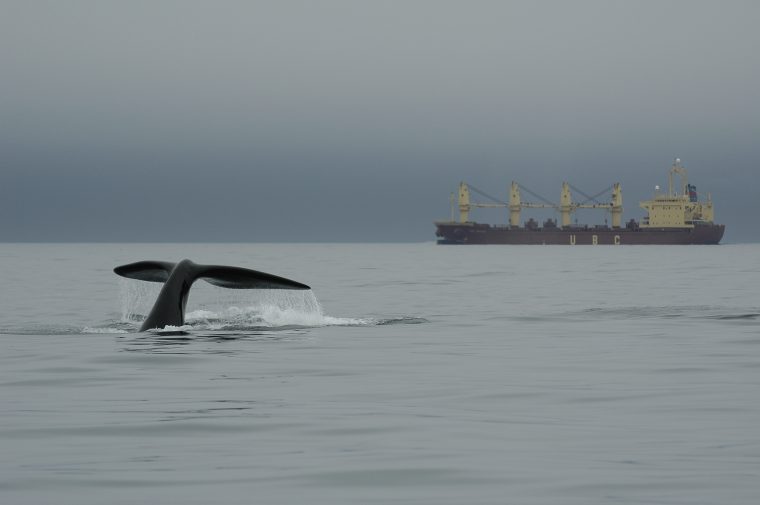Please note: We strongly recommend purchasing tickets online in advance during the heat wave, as our ticket booth is located outdoors.
Fears of extinction mount as right whales are uplisted to critically endangered status

BOSTON, MASS. (July 9, 2020) – The New England Aquarium is urging the United States and Canadian governments to take stronger action to slow down ships and curb deadly fishing gear entanglements to save North Atlantic right whales after the International Union for Conservation of Nature (IUCN) today moved right whales up from endangered to Critically Endangered status, making them the only large whale species in the world with this distinction.
With only 400 right whales left in the world, fears of their extinction are growing among scientists as the IUCN, an international body that monitors endangered animals, upgraded the whales on their Red List of Threatened Species. “We are running out of time to save these magnificent yet very vulnerable animals,” said Vikki N. Spruill, the Aquarium’s President and CEO. “Whaling nearly killed right whales in the early 1900s. Science tells us that we need to take immediate and urgent steps to prevent that from happening now.”
To address this dire situation, research scientists at the New England Aquarium’s Anderson Cabot Center for Ocean Life are recommending ship speeds in all United States and Canadian waters be reduced to ten knots or less for vessels of all sizes. Studies show that alerting mariners to the presence of North Atlantic right whales and requesting a voluntary speed reduction does not work, while mandatory and enforced speed restrictions are known to be effective.
Additionally, the risks to North Atlantic right whales from entanglements in fishing gear must be lowered by reducing vertical lines in the water and modifying gear to prevent entanglements. More than 40 years of research by New England Aquarium scientists has found that these whales are killed and grievously injured by entanglements with fishing gear that result in the whales drowning, preventing them from feeding, causing them to drag thousands of pounds of gear for thousands of miles and producing unnecessary and inhumane pain and stress.
“North Atlantic right whales are dying needlessly at the hands of humans,” the Aquarium said in a written statement. “It is imperative that the United States and Canada work together to prevent North Atlantic right whales from becoming the first large whale species to go extinct. For every whale we keep from a preventable human-caused death, we preserve a lineage of North Atlantic right whales for future generations.”
The full statement from the New England Aquarium can be found here.
The New England Aquarium has been studying right whales since 1980 when an Aquarium research team unexpectedly discovered 25 North Atlantic right whales in the Bay of Fundy. Before the discovery, scientists believed the right whale was nearly extinct. The Aquarium aims to develop and implement solutions to reduce the threats of vessel strikes and fishing gear entanglements, protecting the remaining right whales in our backyard. Aquarium fieldwork, which includes more than 35 years of uninterrupted surveys in the Bay of Fundy, has provided invaluable knowledge about right whale behavior, habitat use, and the impact of anthropogenic activities on the population. The Aquarium also is a founding member of the North Atlantic Right Whale Consortium, an internationally recognized model for single-species consortia, and recently released an updated edition of the book Disappearing Giants: The North Atlantic Right Whale.
DROPBOX LINK TO IMAGES OF RIGHT WHALES HERE
MEDIA CONTACT:
Pam Bechtold Snyder, psnyder@neaq.org; 617-686-5068
